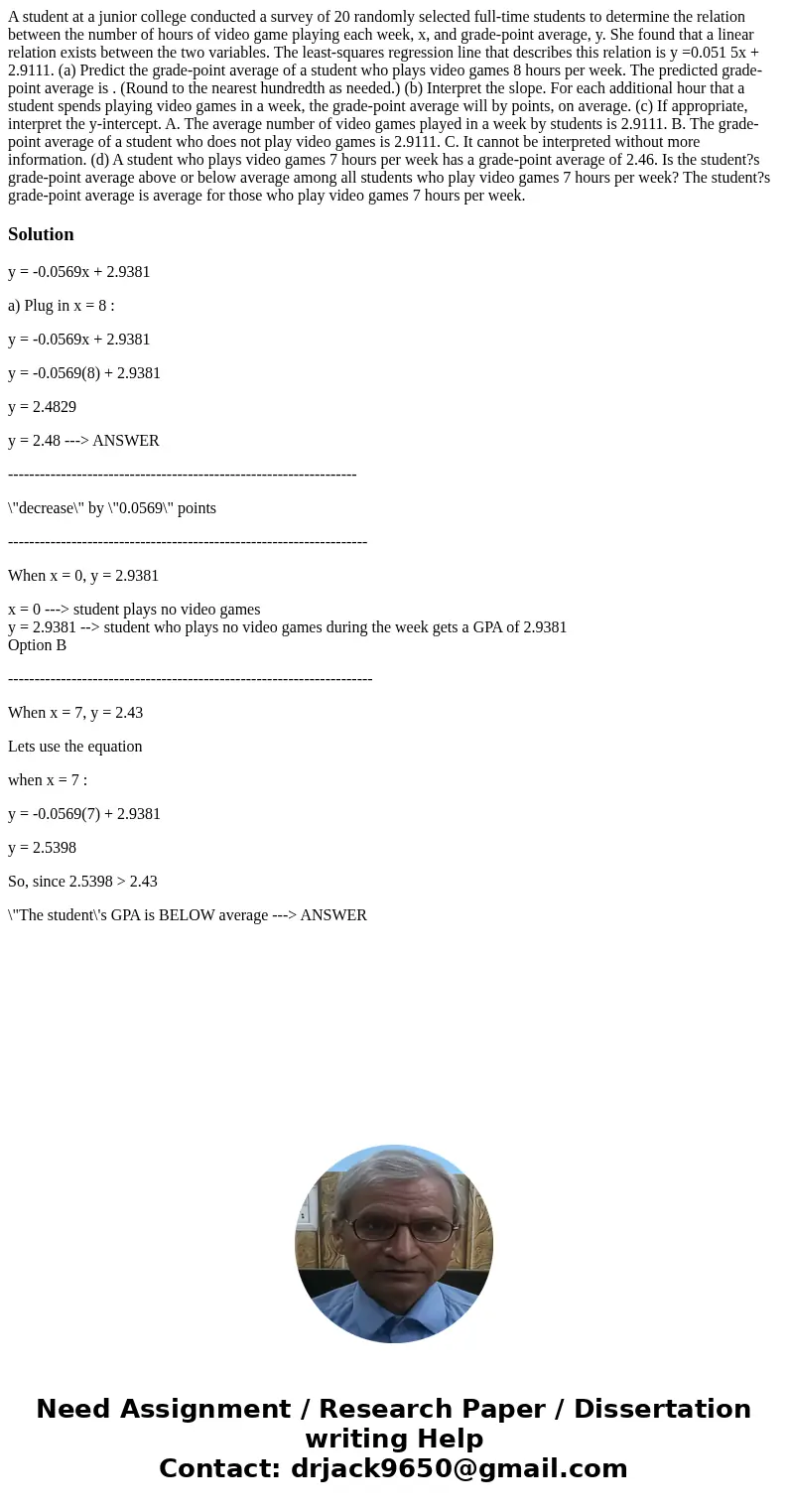A student at a junior college conducted a survey of 20 rando
A student at a junior college conducted a survey of 20 randomly selected full-time students to determine the relation between the number of hours of video game playing each week, x, and grade-point average, y. She found that a linear relation exists between the two variables. The least-squares regression line that describes this relation is y =0.051 5x + 2.9111. (a) Predict the grade-point average of a student who plays video games 8 hours per week. The predicted grade-point average is . (Round to the nearest hundredth as needed.) (b) Interpret the slope. For each additional hour that a student spends playing video games in a week, the grade-point average will by points, on average. (c) If appropriate, interpret the y-intercept. A. The average number of video games played in a week by students is 2.9111. B. The grade-point average of a student who does not play video games is 2.9111. C. It cannot be interpreted without more information. (d) A student who plays video games 7 hours per week has a grade-point average of 2.46. Is the student?s grade-point average above or below average among all students who play video games 7 hours per week? The student?s grade-point average is average for those who play video games 7 hours per week. 
Solution
y = -0.0569x + 2.9381
a) Plug in x = 8 :
y = -0.0569x + 2.9381
y = -0.0569(8) + 2.9381
y = 2.4829
y = 2.48 ---> ANSWER
------------------------------------------------------------------
\"decrease\" by \"0.0569\" points
--------------------------------------------------------------------
When x = 0, y = 2.9381
x = 0 ---> student plays no video games
y = 2.9381 --> student who plays no video games during the week gets a GPA of 2.9381
Option B
---------------------------------------------------------------------
When x = 7, y = 2.43
Lets use the equation
when x = 7 :
y = -0.0569(7) + 2.9381
y = 2.5398
So, since 2.5398 > 2.43
\"The student\'s GPA is BELOW average ---> ANSWER

 Homework Sourse
Homework Sourse